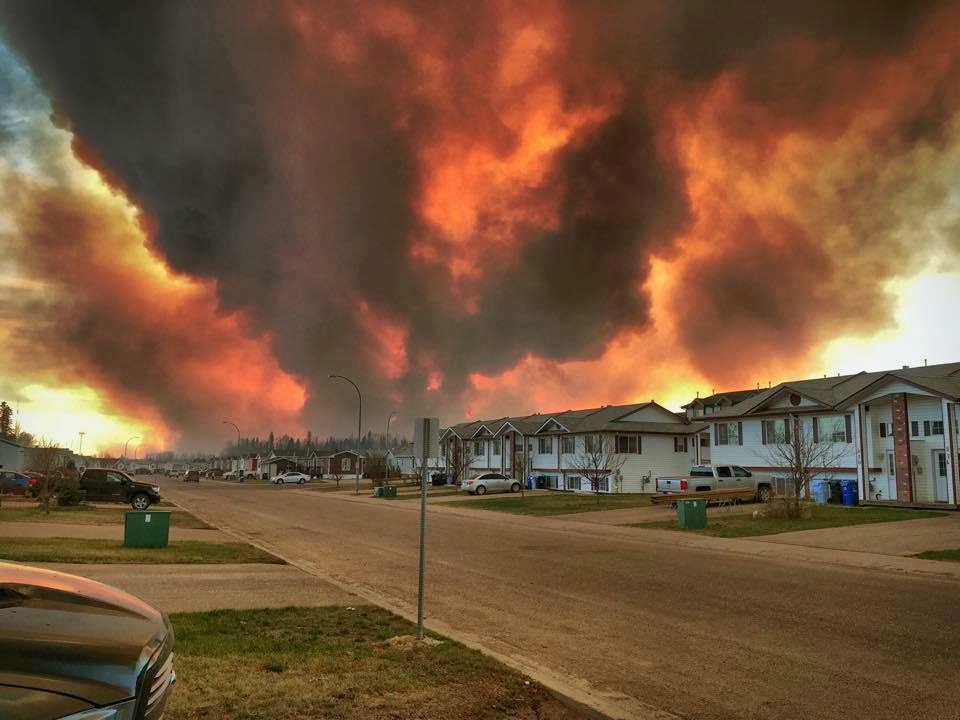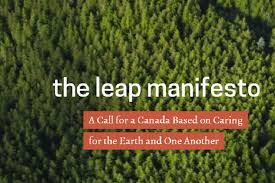 By Ray Rivers
By Ray Rivers
May 13, 2016
BURLINGTON, ON
Even deep ecologists, the folks who’ll tell you that fire is a natural part of a sustainable forest, cannot defend what has been happening at Fort McMurray, Alberta. The ‘Beast’, Fort McMurray’s runaway fire is not a controlled burn by any measure. This has been called the worst environmental disaster in Canadian history.

The fire, named the Beast bu he men and women who had to fight it day after day, moved into communities an wiped out everything in its path.
The Beast has gobbled up over 200,000 hectares of woodland so far. That is more acreage than foresters harvest in B.C.annually. And it is twice as much as gets taken down each year in Ontario, generating 13 billion dollars in revenues, including some five billion dollars in forest products exports for our province. Also, Ontario’s treasury gets $100 million in royalty payments, and of course there are all those spin off benefits.
Firefighters managed to save an estimated eighty to ninety percent of the building stock in the Fort McMurray, though some suburbs were virtually destroyed. And the entire city and surrounding communities, as many as 100,000 residents, had to be evacuated. In a show of national unity all Canadians and many of their provincial governments came forward contributing fire-fighters and money to help with the consequences and aftermath of this event.
Canada is no stranger to forest fires. As a country which has the world’s second largest land mass, much of it sparsely populated, we typically lose over 600,000 hectares to fire every year. But the fire season has barely started this year and the Beast has already claimed a third of that with the fire still burning. The exceptionally hot and dry spring, and possibly a careless human, are the likely causes. But authorities worry that Edmonton, also experiencing exceptionally dry conditions, may be next.
Is climate change to blame? This is exactly the kind of event that climatologists have been predicting. And that would make this the second time in only a couple years, that Alberta has been hit with a major climate related event – recall that monster flood in Calgary a couple years ago. But few people are saying that in public. Well, Elizabeth May, the Green Party leader, is but then she’ll never be PM so she can say what is truly on her mind. Our new climate-change-fighting PM was reluctant to make the linkage, though he doesn’t really need to – it’s obvious.
Of course nobody wants to be accused of blaming the victims, including the oil sands operators who have had to suspend operations. Our hearts go out for the people who’ve lost their homes and possession, and have spent the last several days living in community centres, or with family somewhere else. And the truth is that leaping to shut down oil sands operations, in recognition of the reality before us, would hardly reverse the climate change we are experiencing in the short run anyway.

The Leap Manifesto should at last be read – Rivers has created a link to the document at the bottom of his column.
You may have heard about the Leap Manifesto, something which nearly tore the heart out of the recent NDP national convention in Edmonton. Avi Lewis, son of former Ontario NDP leader Stephen Lewis presented it in the faint hope of obtaining an endorsement by that party. Its non-partisan sticker notwithstanding, the document was produced to influence last year’s federal election and presumably energy policy in Alberta, though even Mr. Mulcair seemed to have mis-interpreted it and Alberta’s Premier was deadly opposed.
Lewis and his wife; journalist, author and social activist Naomi Klein, initiated this project as an afterthought to her book “This Changes Everything” and his documentary of the same name. A number of aboriginal leaders, other social and environmental activists, and wannabes assembled to write the Manifesto which reads, as one would expect, like something written by a committee.
Still Leap has morphed into something of a movement with over 40,000 signatures of support in its call to leap beyond business as usual this leap year, including the call for a guaranteed annual income for all Canadians. And as one of its primary targets, it has raised the hackles of the oil industry by its not so veiled call for shutting down the oil sands and any more pipeline construction.
Fort McMurray, Alberta’s oldest European settlement dating back to 1788, started out as a lonely fur trading establishment. Today it is known as the city that services Canada’s oil sands industry and Canada’s most valued export industry, despite the collapse of oil prices last year. The city will rebuild and recover, the forests surrounding it will regrow and things will go back to normal, for a while anyway.
But the message of the Leap Manifesto is right about how and where we ultimately need to get our energy. Forty years ago we didn’t speak of climate change or global warming. Fossil fuels seemed like the future, energy independence seemed critical and Canada was running out of oil.
 Alberta with the help of the federal government, then led by Mr. Trudeau’s father, supported the oil sands mega-project. But given what we know today, It may well take another Trudeau to help Albertans move away from producing the dirtiest oil on the planet.
Alberta with the help of the federal government, then led by Mr. Trudeau’s father, supported the oil sands mega-project. But given what we know today, It may well take another Trudeau to help Albertans move away from producing the dirtiest oil on the planet.

Ray Rivers writes weekly on both federal and provincial politics, applying his more than 25 years as a federal bureaucrat to his thinking. Rivers was a candidate for provincial office in Burlington where he ran as a Liberal against Cam Jackson in 1995, the year Mike Harris and the Common Sense Revolution swept the province. Rivers is no longer active with any political party.
Background links:
The Beast – Fire Damage – Climate Change – Oil Exports – Forest Facts –
Canada’s Forests – Carbon in Forests – Still Burning – Leap – This Changes Everything –



















“The dirtiest oil on the planet”? Please check your facts –Google might help, and you can start with the following link:
https://ipolitics.ca/2014/07/18/how-clean-is-our-dirty-oil-youd-be-surprised/
Thanks Joe – I value your input and will check out the web links.
Ray
Ray: Last time I looked “ipolitics.ca” was not a mouthpiece for the oil sands, nor am I. I am all for reducing consumption, which is a better way of reaching the same end point. Those who use the wildfire to substantiate their cause are doing more harm than GOOD. Then there is the practicality of leaving it in the ground, Iceland (circa 1998) was the first country to suggest transitioning to 100% renewable energy, and looked to using hydrogen for vehicles and its fishing fleet, but I believe the actual progress as of 2016 has been very limited. If we are going to use links here are two for you to consider.
https://www.thespec.com/opinion-story/6498274-being-selective-about-environmental-scapegoats/
https://ipolitics.ca/2016/05/05/why-pinning-the-fort-mcmurray-wildfires-on-climate-change-is-a-bad-idea/
Greenhouse Gas Emissions are not the extent of defining dirty. It takes a very ethically deranged group of participants to allow the kind of tar sands tailings lakes that are being created in our Arctic or near-Arctic environment. Either we stop it asap or it will leave a disgrace 10,000 times worse than the Sydney Tar Ponds.
Dear Joe – Nice try – but I’d be careful buying into all the propoganda from oil sands operators hoping for a Keystone pipeline over-turn. IIt is true that there are other oil sands operations, including some in the USA – but our Canadian operations swamp all the others – jusy think about it. https://content.sierraclub.org/creative-archive/sites/content.sierraclub.org.creative-archive/files/pdfs/100_125_TarSandsDomestic_FactSht_01_low_0.pdf
Ray: Get your facts straigh, California study says:
“There are 13 oil fields in California, plus crude oil blends originating in at least six other countries, that generate a higher level of upstream greenhouse gas emissions than Canadian dilbit blends;
• Crude oil from Alaska’s North Slope, which makes up about 12 per cent of California’s total crude slate, is actually “dirtier” than the Canadian dilbit known as “Access Western Blend”;
• The “dirtiest oil in North America” is not produced in Canada, but just outside Los Angeles, where the Placerita oil field generates about twice the level of upstream emissions as Canadian oilsands production; and
• The title of “world’s dirtiest oil” goes to Brass crude blend from Nigeria, where the uncontrolled release of methane during the oil extraction process generates upstream GHG emissions that are over four times higher than Canadian dilbit.
Source:Ipoliitcs.ca
The warm dry condition in which the Edmonton fires flourished was caused by the very strong El Nino which was predicted two years earlier. Why wasn’t the province ready for it? They knew the conditions were coming?